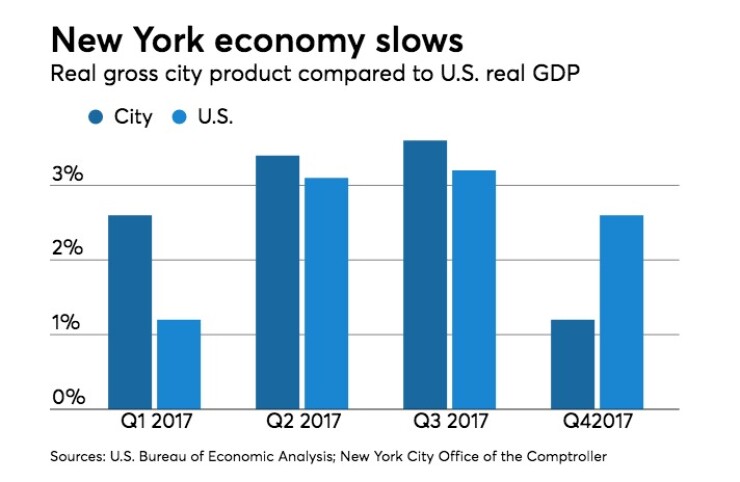New York City’s economy slowed down at the end of last year, according to city Comptroller Scott Stringer, as gross city product rose only 1.2% in the fourth quarter.
The national economy expanded by 2.6% during that quarter, Stringer said in his
“The weakness in employment growth should serve as a reminder that the robust rate of job creation in the city over the last several years won’t continue forever,” said Stringer. “We will continue to monitor the economy’s condition closely, but this quarter’s results highlight the need for prudence in the management of our finances.”

Mayor Bill de Blasio on Feb. 8 released his $88.7 billion preliminary budget to the 51-member City Council, which is holding hearings on the spending plan.
In the final three months of 2017, private-sector employers shed 17,300 jobs, including 15,700 in medium-wage industries. For all of 2017, private-sector employers added 71,400 jobs in 2017, compared to 83,600 new private-sector jobs in 2016.
Released every three months, the comptroller’s quarterly economic update tracks the city’s economic health and analyzes the city’s economy in a national context.
The report includes information on economic growth, unemployment, average wages, business activity, real estate transactions, and other economic indicators.
Average weekday ridership on the Metropolitan Transportation Authority’s New York City Transit units fell 0.9% in October and November from a year ago, said Stringer, as bus ridership fell 3.4%. During that, Long Island Rail Road ridership fell 0.5%, but increased 0.1% on Metro-North Railroad.
In 2017 through November, average weekly ridership fell 1.2% on MTA subways and 5.5% on the buses.





